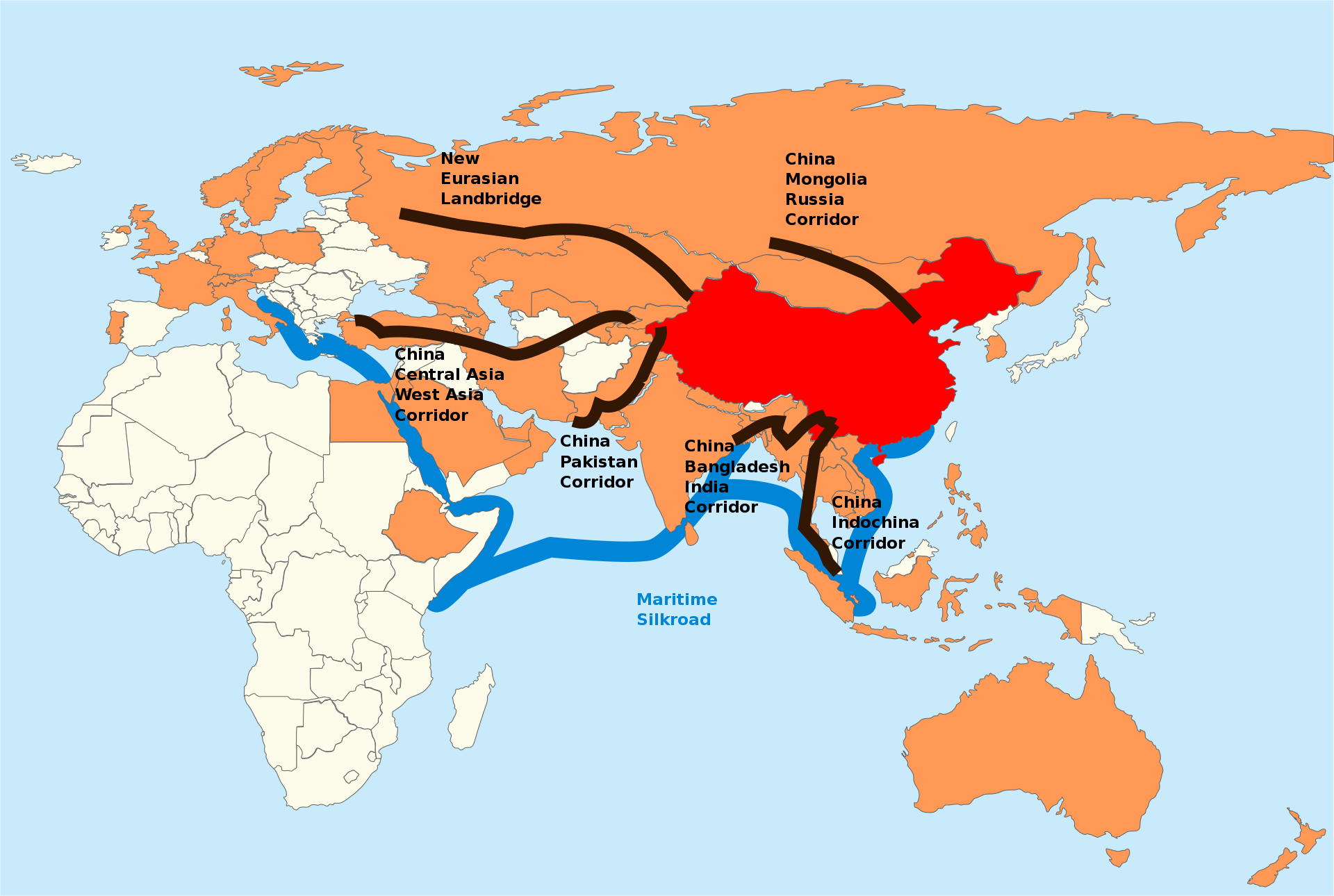Jucheguevara (talk | contribs) (added some more info and links and references) Tag: Visual edit |
Jucheguevara (talk | contribs) (removed page warning) Tag: Visual edit |
||
| Line 1: | Line 1: | ||
[[File:One-belt-one-road.svg.png|alt=Map of Transportation routes in the Belt and Road Initiative|thumb|Transportation routes in the Belt and Road Initiative]] | [[File:One-belt-one-road.svg.png|alt=Map of Transportation routes in the Belt and Road Initiative|thumb|Transportation routes in the Belt and Road Initiative]] | ||
The '''Belt and Road Initiative''' ('''BRI''') is a global infrastructure development strategy adopted by the [[China#Governance|Chinese government]] in 2013 to invest in nearly 70 countries and international organizations. It is considered a centerpiece [[Xi Jinping]]'s foreign policy.<ref>{{News citation|title=President Xi proposes Silk Road economic belt|url=https://www.chinadaily.com.cn/china/2013xivisitcenterasia/2013-09/07/content_16951811.htm}}</ref> | The '''Belt and Road Initiative''' ('''BRI''') is a global infrastructure development strategy adopted by the [[China#Governance|Chinese government]] in 2013 to invest in nearly 70 countries and international organizations. It is considered a centerpiece [[Xi Jinping]]'s foreign policy.<ref>{{News citation|title=President Xi proposes Silk Road economic belt|url=https://www.chinadaily.com.cn/china/2013xivisitcenterasia/2013-09/07/content_16951811.htm}}</ref> | ||
Revision as of 15:50, 21 January 2022

The Belt and Road Initiative (BRI) is a global infrastructure development strategy adopted by the Chinese government in 2013 to invest in nearly 70 countries and international organizations. It is considered a centerpiece Xi Jinping's foreign policy.[1]
The BRI is one of the many factors which is leading to de-dollarization[2] the decline of the influence of the US empire,[3] and enhanced economic growth of non-aligned countries.
The project has a target completion date of 2049.[4]
In 2021, Cuba has joined the BRI project for the purpose of expanding its telecommunications and green energy industries.[5] Syria has also joined.[6]
Reactions
The BRI has been demonized by Western bourgeois media on the basis that it's a "debt trap"[7] or an example of so-called "Chinese imperialism," but these claims serve only propaganda purposes and are not founded in evidence.[8][9][10]
References
- ↑ "President Xi proposes Silk Road economic belt".
- ↑ https://moderndiplomacy.eu/2018/04/09/the-de-dollarization-in-china/
- ↑ Danny Haiphong. "U.S. imperial Decline and the Belt and Road Initiative: The Most Important Global Struggle of the Century" Black Agenda Report.
- ↑ https://www.pr.com/press-release/780645
- ↑ "Cuba Formally Joins China's Belt and Road Energy Partnership" (2021-10-18). TeleSUR.
- ↑ "Syria Officially Joins China's Belt and Road, Seeking Lifeline to Defy U.S. Sanctions" (2022-12-01).
- ↑ "China's debt-trap diplomacy". The Hill.
- ↑ "Debunking the Myth of ‘Debt-trap Diplomacy’". Chatham House.
- ↑ "The Chinese 'Debt Trap' Is a Myth". The Atlantic.
- ↑ "Catagorically Debunking the Claim that China is Imperialist".